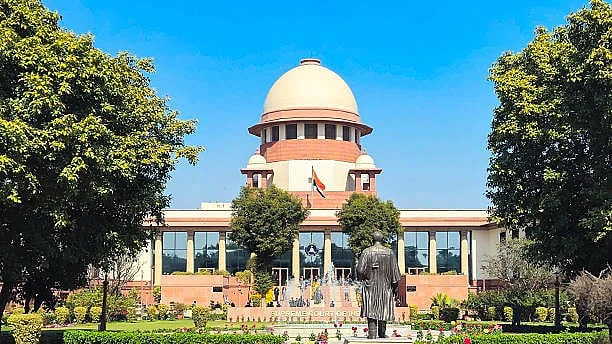New Delhi: The Supreme Court has said neighbourhood quarrels involving heated exchanges and even physical blows, which occured in everyday life, cannot be treated as instigation to die by suicide.
A bench of Justices B V Nagarathna and K V Vishwanathan acquitted Geeta from Vijaypura of the charges under Section 306 of the IPC, in a case in which she allegedly abused the victim, living in infront of her house, by calling her “bitch”.
The bench said, though ‘love thy neighbour’ is the ideal scenario, neighbourhood quarrels are not unknown to societal living. They are as old as community living itself.
“For the purpose of examining whether the ingredients of Section 306 are attracted, we take the prosecution case as it is. Taken at its highest, there is definitely evidence on record to show that over a period of few months the neighbours were at loggerheads,” the bench said.
The court noted while the victim felt that her tuition classes were being disturbed, the appellant’s family have also had a grievance about the victim and her family scolding the children of the appellant’s household.
“There is no doubt that not only were there heated exchanges, but physical blows were also alleged to have been administered by the appellant’s party,” the bench said.
However, the appellant stood acquitted for the offence punishable under Section 323. She stood acquitted even for the offences punishable under Section 504 and 506. The State has not preferred any appeal, the court noted.
“Even if we were to assume that physical blows were administered, will that per se constitute abetment to suicide? This court in a case where the accused told the deceased “go and die” and when thereafter, the deceased committed suicide, absolved the accused of the charge under Section 306,” Justice Vishwanathan wrote in the 18-page judgment on September 9, 2025.
The court allowed her appeal against the Karnataka High Court’s judgment of April 27, 2018, after hearing advocate Sharanagouda Patil for the appellant and D L Chidananda for the State.
“We are not able to persuade ourselves to hold that when the appellant’s family and the victim’s family had heated exchanges, there was any intention to abet or to cause any member of either family to take their own life,” the bench said.
The court observed, these quarrels occured in everyday life.
“On facts we are not able to conclude that there was an instigation on the part of the appellant to such an extent that the victim was left with no other option but to commit suicide,” the bench said.
The court emphasised the intention of the accused to aid or to instigate or to abet the victim to commit suicide is a must for attracting Section 306 of the IPC.
In the case, the High Court confirmed her conviction but reduced her sentence from five to three years in jail.
The HC acquitted the woman of the charges under Section Section 3(2)(v) of the SC/ST (Prevention of Atrocities) Act, under which the trial court imposed life imprisonment.
On August 12, 2008, the deceased-Sarika, who used to give tuition classes to children, set herself on fire. She alleged the appellant used to abuse her by calling her bitch when she complained about noise coming from the appellant’s home which affected her tuition classes. She died on September 02, 2008.
